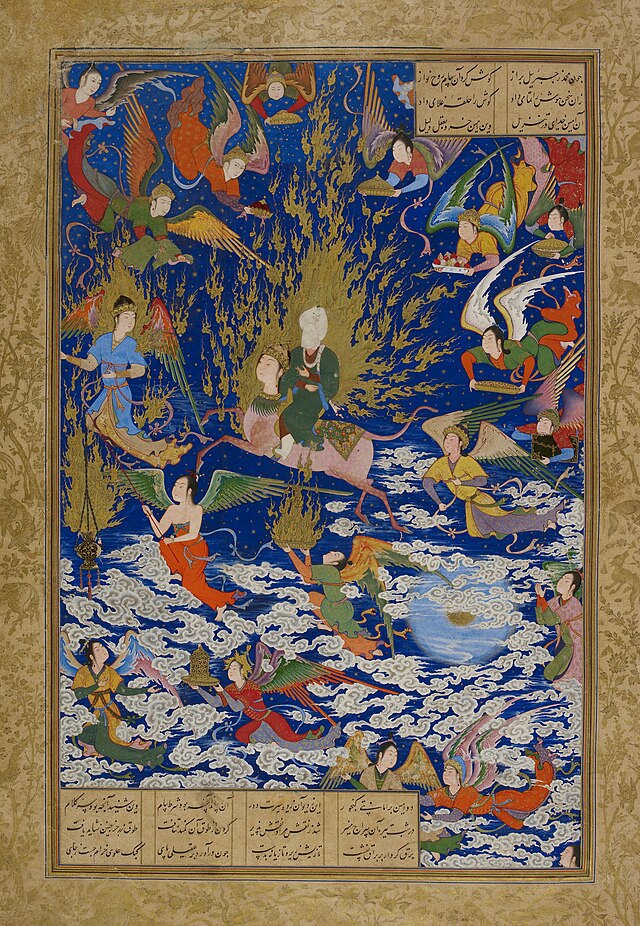Quite. That He didn't puts the whole thing in doubt.
But let's not shut the door just yet, Thomas. What are your thoughts about
Roger Haight, a Catholic theologian? I noticed some interesting quotes from Haight that emphasize the symbolic understanding of Christian ideas in the first Christian community:
". . . one finds no doctrine of an immanent trinity in the New Testament, that is, a doctrine depicting the inner reality of God as differentiated . . . The language of the New Testament represents God at work in the world for human salvation in 'economic' terms such as 'Word', 'Wisdom', 'Angel of the Lord', 'Spirit', 'Son of Man', and so on. This language is often described as functional, experiential, relational, and narrative; it recounts the experience of God's saving action for us in history."
"Jewish tradition was quite familiar with the personification of various symbols representing God's action in the world. A most influential example of this is the personification of God's wisdom or Sophia. But whereas personification is recognized as figurative speech, hypostatization represents a certain literalization of it . . . the making of an idea or a concept or a figure of speech into a real thing, or entity."
As Christian theology developed there was "the hypostatization of symbolic language about God . . . making an idea or a concept of a real thing." This literalization was probably something the first Christian community didn't engage in. Haight continues, highlighting later developments:
"Wisdom is no longer a linguistic symbol referring obliquely to an attribute of God, Logos is no longer a figure of speech but a distinct being; Spirit is no longer a constructive exercise of the human poetic imagination that metaphorically depicts the effects of God as the invisible power of the wind, but a literal something."
Despite this, Haight seems to affirm later Christian theological developments:
"Surely Jesus did not display any consciousness that he had two natures and was hypostatically united to the divine Word."
"Historical research into Jesus seems to impel the following thesis: later interpretations of Jesus may capture his intrinsic meaning and reality even though they may not have been part of Jesus' self-consciousness or self-understanding. In other words, one can affirm something to be the case about Jesus, especially in his relation to God or in his relation to ourselves, that was not necessarily part of Jesus' consciousness."
Just wondering what you think about this.
For those not familiar with Roger Haight, I found a good summary of the controversy surrounding his book
Jesus Symbol of God here. His book doesn't seem to fling vitriol, but, as the writer of the summary points out, he was doing speculative theology. Anyway, the writer says the debate has three aspects:
First, and perhaps most arcane, is the meaning of the word “symbol” in the phrase, “Jesus symbol of God.” Haight says that his refusal to accept “undialectically” the statement “Jesus is God” is in fact based on his reading of the Council of Chalcedon (451) and not just on his “postmodern” understanding of the linguistic and epistemological nature of symbolism. His critics maintain, however, that Haight’s understanding of “symbol,” which is rooted in his appropriation and development of Edward Schillebeeckx’s neo-Thomist classic, Christ the Sacrament of the Encounter with God (1963), is fatally reductionistic, resulting in an understanding of Jesus as a figure who merely points beyond himself to God rather than being God.
The second major concern deals with Haight’s work in ecclesiology (see Luke Timothy Johnson, Commonweal, January 28, 2005). Haight is accused of allowing the idea of historical change and contingency to trump the idea of revelation and doctrinal authority.
The third objection raised by Haight’s critics has to do with his embrace of religious pluralism and how he presents the truth claims of Christianity vis-à-vis the truth claims of other religions. It is Haight’s conviction that it is simply no longer possible to assert the superiority of Christianity in any objective, metaphysical way. Moreover, he does not think that it is necessary for Christians to persuade the adherents of other world religions to accept the truth of Christ. Naturally, Haight’s positive regard for religious pluralism presents a fundamental challenge to traditional notions of Christian identity. It also raises for some the specter of relativism, as it appears to make Christianity no more than one option-albeit “the best for me”-among many.
Thomas wrote:
That Christ spoke from the moment of His birth. That He brought clay birds to life. In the 3-4th centuries there was a minor industry in concocting childhood narratives of Christ. Because they were without provenance they were dismissed as fictions.
Who dismissed them? Can you provide any quotes? Thanks.
Also, in the Koran, yes, Christ spoke from the moment of his birth and Christ brought clay birds to life. Should these ideas be understood according to their exterior meanings? Or are there inner meanings to these words that point to something else?

